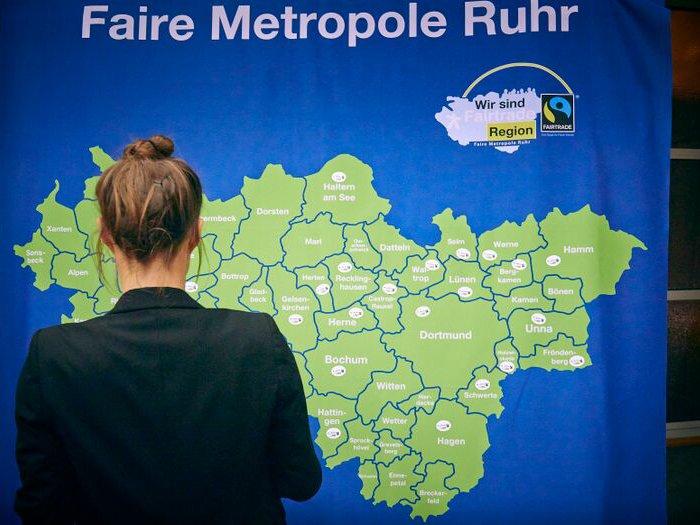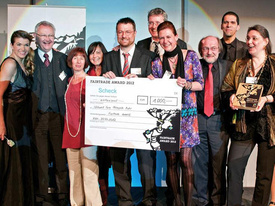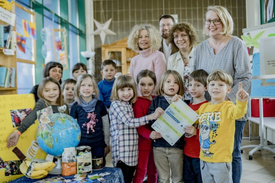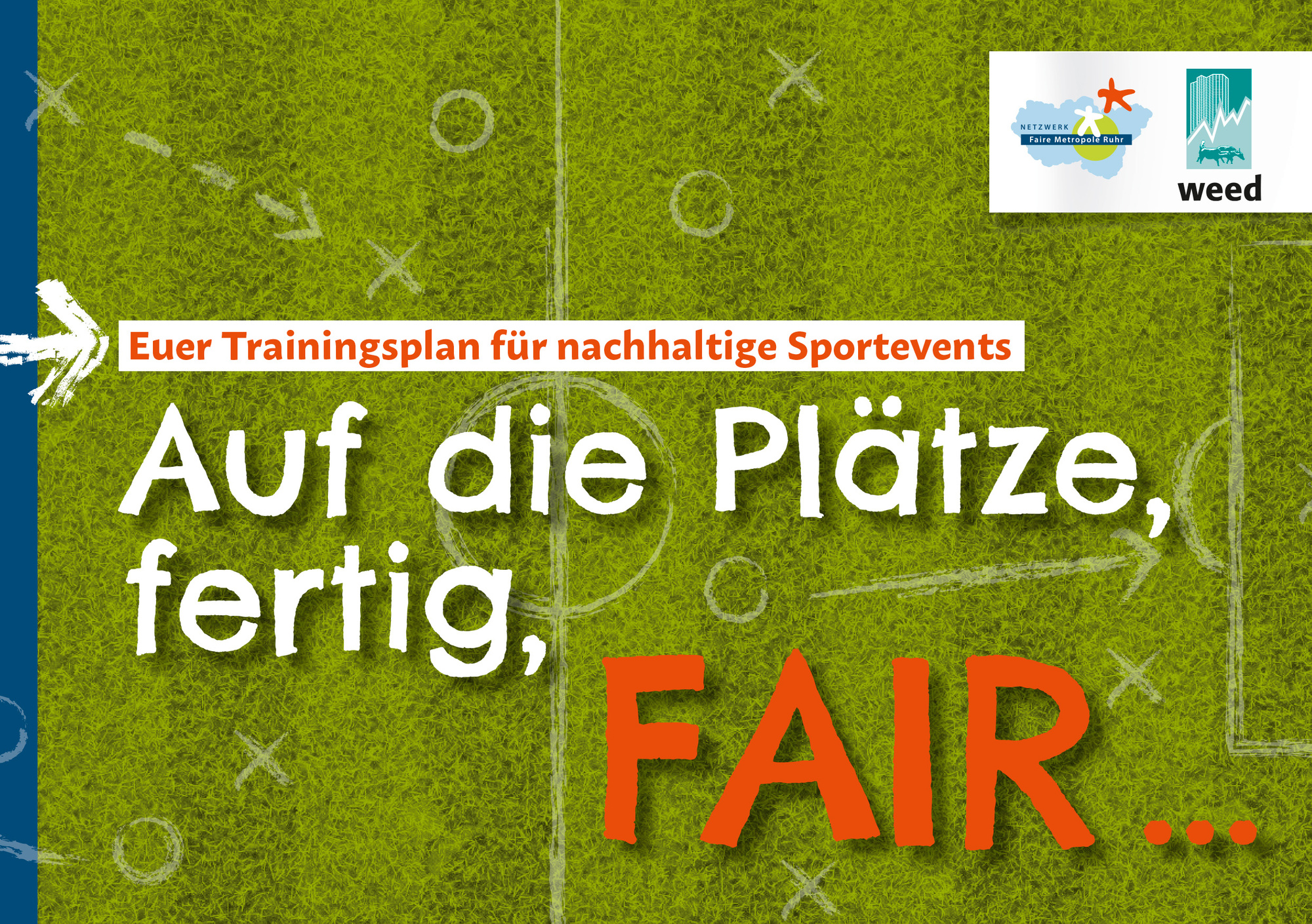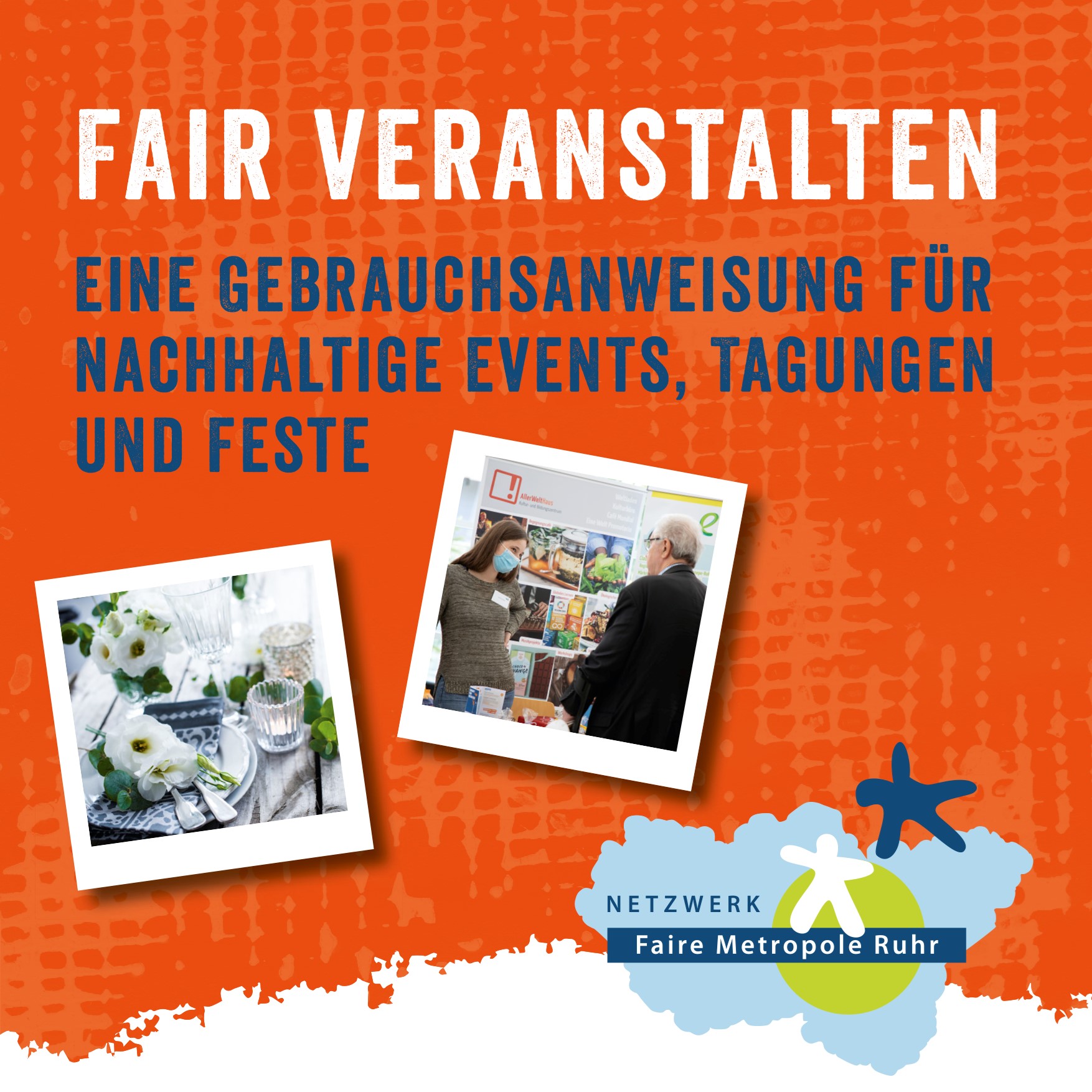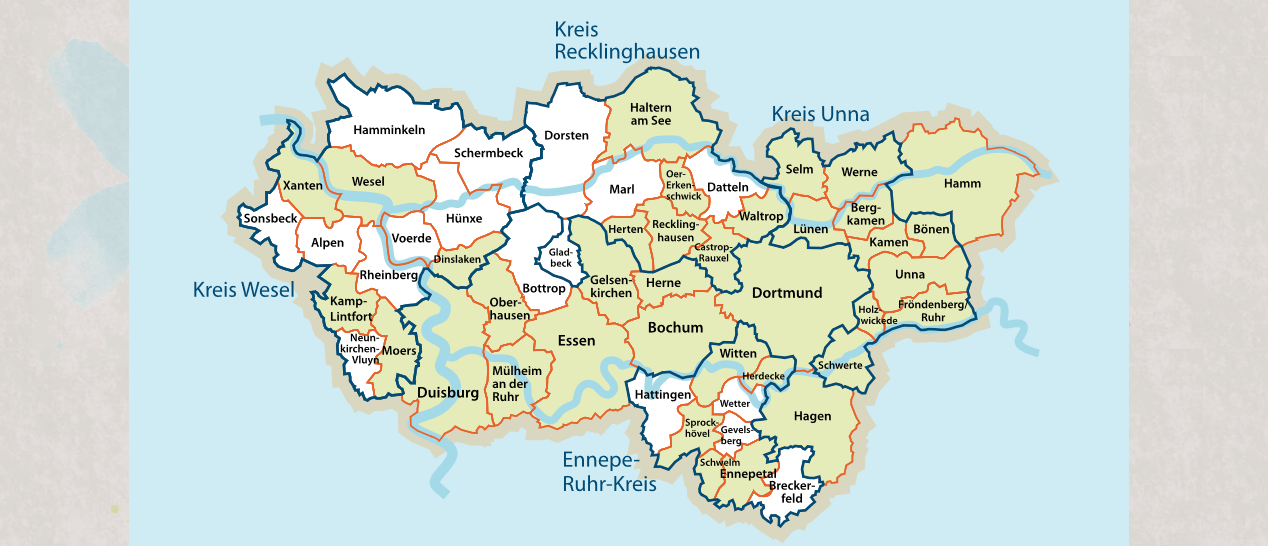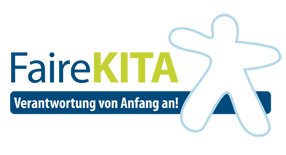Fair Metropolis Ruhr
Industrial site, football region, capital of culture – all this defines the Ruhr region. But it is more than that. Since 2013 the Ruhr region has been pioneering the adoption of fair trade policies: on the 20th of November 2013, the Ruhr region was the first metropolitan region in Germany and the first regional association of towns worldwide to be awarded the title “Fair Trade Metropolis.” 21 cities as well as the district of Wesel earned the award for the whole Ruhr area through their commitment as fair trade towns and districts. Meanwhile 40 municipalities in the Fair Metropolis Ruhr are fair trade cities or districts. Checkout this map to see which cities and districts have been awarded.
The award can be traced back to the long-standing commitment of the network “Fair Metropolis Ruhr”. The network defines itself as a (development) policy initiative. Since more than a decade the network links and coordinates activities of civil-society and church-based organisations as well as local authorities. We consult and support local actors to implement and anchor Fair Trade and fair public procurement at the regional and local level in the Ruhr area. Thereby we take the sustainable development goals (SDGs) into the cities to support a sustainable municipal development - locally and globally.
Current Project Fair Metropolis Ruhr 2030
In January 2021 we started our current two-year project "Fair Metropolis Ruhr 2030" through which we opened a new chapter for the Ruhr Area.The aim of the project is for the municipalities in the Ruhr Area to take on greater responsibility than before in the implementation of minimum standards in world trade as well as fair working conditions in the Global South. The overarching framework of our project builds the "Charter Fair Metropolis Ruhr 2030 - a Fair constitution for the Ruhr Area". Furthermore, other key areas of the project are fairly organized events, fairly traded sport balls and other sport equipment as well as fairly organized sport events, Fair Trade in youth work and gender equality in Fair Trade.
Charter Fair Metropolis Ruhr 2030 - A Fair consitution for the Ruhr Area

The Ruhr Area stands in the tradition of hard-won employees' rights and a socially just and equitable form of industrialisation. However, more people than ever are globally producing goods under conditions that violate human rights – including for municipalities in the Ruhr Area. In 2010, the “Magna Charter Ruhr against exploitative child labour” obliged all 53 cities, municipalities, and districts to ban all products from public procurement that have been produced using child labour.
As Metropolis Ruhr we want to continue advocating against the exploitation of people and nature. Therefore, we have developed the "Charter Fair Metropolis Ruhr 2030 - A Fair constitution for the Ruhr Area". With this Fair constitution we call on municipalities in the Ruhr Area to commit themselves to a sustainable future of the Ruhr Area, to Fair Trade and Fair public procurement and to act upon this commitment. The 17 Sustainable Development Goals (SDGs) build the foundation of the charter.
With the Charter we want to achieve that municipalities in the Ruhr Area contribute to the implementation and achievement of the 2030 Agenda for Sustainable Development and to a sustainable development - locally and globally. The SDGs emphasise municipalities as special actors to take responsibility and contribute their competence (SDG 11). For us, the development goals to promote decent work as well as sustainable consumption and production patterns have a special relevance (SDGs 8 and 12). Climate protection must be considered in all our activities (SDG 13).
You can find an English Version of the charter here.
Milestones of our work
In 2010, the Ruhr area was the European Capital of Culture and presented itself as a model region for Europe. By signing onto the MAGNA CHARTA RUHR.2010 against exploitative child labor, all involved municipalities (54) and counties (4) committed themselves to abstaining from government procurement of products that are produced through exploitative child labor. The cities and communities of the Ruhr area, with more than five million inhabitants altogether, have thereby paved the way for the global responsibility of municipalities in Europe. Since then, an exhibition about exploitative child labor, designed together with Misereor, has raised awareness in many municipalities about this issue.
The continuing developmental policy education from the One World Centers and groups, including campaigns like “Der Pott kocht fair”, which established local fair trade coffee brands in the Ruhr area, the Fair Trade advocate “Fair Trade & Friends", and much more, build a solid basis for this objective. For this particular commitment, the “Fair Metropolis Ruhr” network received the Fair Trade Award 2012 from Fairtrade Germany in Berlin.
After this success, the participating municipalities set out together to give the subject of “fairness” a new focus and have been awarded the title “Fair Metropolis Ruhr” in 2013, as the first region in Germany and worldwide. Being awarded as a "Fair Trade Metropolis" was only an intermediate goal for the initiators of this project. Further plans are underway, the final objective of which is to certify each municipality of the Ruhr area as a Fair Trade Town, in order to present Fair Trade issues to a broader public, and to strengthen fair government procurement processes.
Furthermore, since October 2013 the network is making an important contribution to establishing global learning, Fair Trade issues and education for sustainable development in early childhood education with its project "FaireKITA", with a specific focus on daycares, or “kindergartens.”

